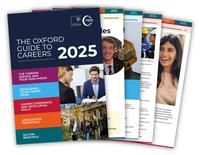Sample Job Description
Researcher - The ABC Group Graduate Programme
We are specialist advisers to corporate owners and high net worth individuals. We have built a strong reputation for working with companies and individuals, to enhance their business and personal finances. This has been achieved through the development and design of highly specialised services for our clients.
As a researcher you will work closely with and support our client advisory teams, conducting in-depth research and due diligence to help them provide specialist and comprehensive advice to our clients.
Job Requirements:
- Achieved (or predicted) a 2:1 or above in any degree discipline
- Very strong written and verbal communication skills
- Ability to work well in a team environment
- Strong attention to detail
- Ability to multi-task and manage workload and responsibilities
- Interest in business and finance
- Good working knowledge of Microsoft Office Suite
My Evidence
- Achieved/Predicted 2:1
- Yes
- Communication skills
- Written: Author of college bi-weekly Arts Newsletter; social media manager for college drama society; weekly essays and dissertation
- Verbal: Private tutoring GCSE/A-Level students; school debating team; presentation of 2nd year project
- Ability to work well in a team environment
- Member of college drama society, working with cast members and technicians to stage annual summer play
- Vacation job at restaurant, working with team of 6 other waiters to ensure smooth running of food service
- Worked with team of 4 to advise client (local cafe owner) on how to increase number of customers as part of the Oxford Strategy Challenge (TOSCA) programme
- Strong attention to detail
- Editing bi-weekly college Arts Newsletter; writing and editing drama society social media posts; vacation job, ensuring customer orders are correct and reconciling till receipts
- Ability to multi-task and manage workload and responsibilities
- In vacations, balance restaurant job with private GCSE tutoring; research and write x 2 essays per week alongside college drama society responsibilities and training and competing as member of college 2nd XI Hockey team.
- Interest in Business & Finance
- Member of OU Finance Society; Participant in Careers Service programme "The Oxford Strategy Challenge" (TOSCA); managing finances/income from private tutoring
- Good working knowledge of Microsoft Suite
- As part of TOSCA project, recorded survey responses using Excel; presented findings and recommendations to client via PowerPoint presentation.





